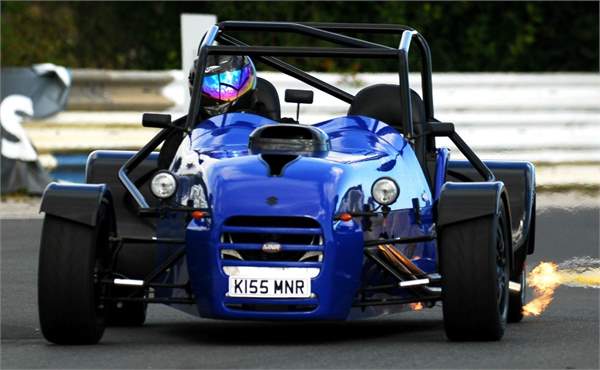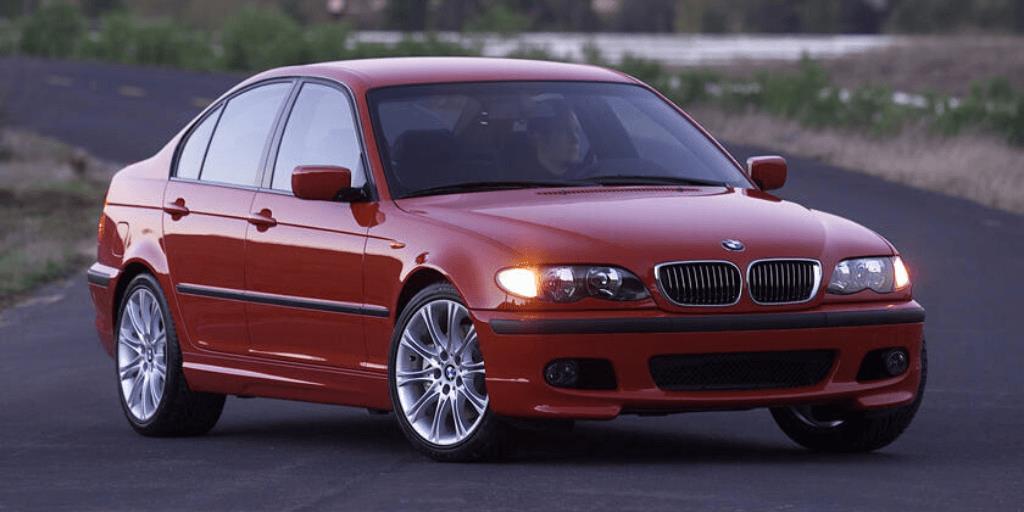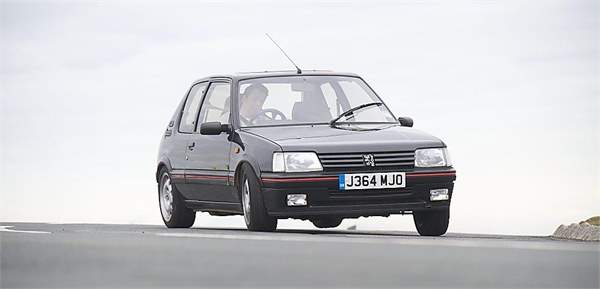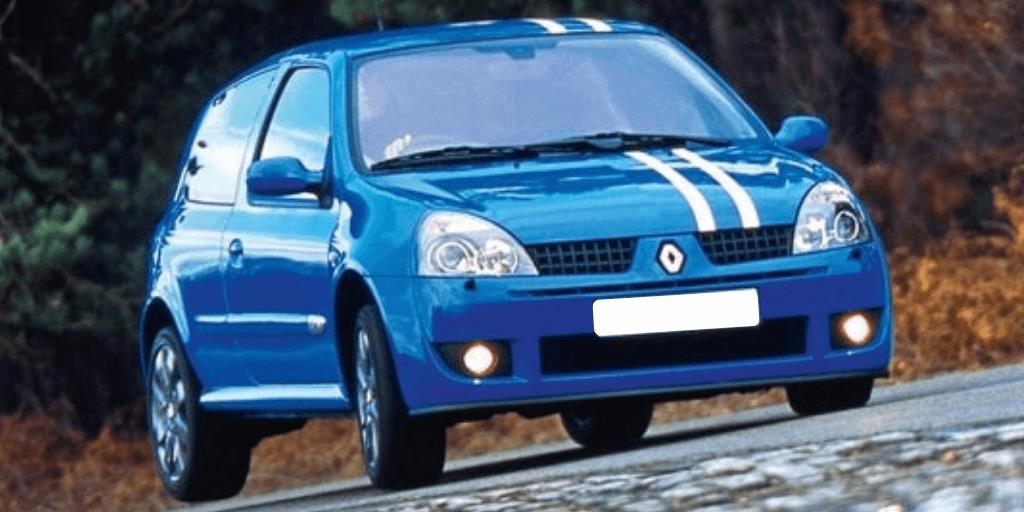If you're on the lookout for a track day car, you're in the right place! Here at MicksGarage we love track days. We love them because they are awesome. Fact. They also represent the best value for money you can get in more or less any form of motorsport, in terms of actual time spent driving your car. We've written a comprehensive beginners guide to track day's which you can check out here. If you can find a track day company that runs an 'open pitlane' as they do at our local track Mondello Park (where you can go out on track as and when you please) then you can stay out on track in your car from the moment the lights turn green to the moment the chequered flag is waved.....granted you'll have run out of petrol ....and brakes....and tyres....and probably concentration long before that! but in theory, at least, it is possible, and you just don't get that kind of value anywhere else. So, you've decided you want to give track days ago and you want to get yourself a suitable track day car. Let's assume you have a small-ish budget of around €/£2500. Before you start looking at cars, you have a number of choices to make:
Does the car need to be road legal? i.e are you planning on driving it to and from the track?
If so it will need an NCT/MOT, tax, insurance and it will want to be fairly reliable, all things which will add to the cost of the car 
Can it be for track only?
If so, you may be able to get a bit more car for your money because you don't need tax, test and insurance, but you will need to factor in the cost of a trailer and a towbar.
Standard or modified?
So do you choose a track day car that is bog standard or one that has already had money spent on it preparing it for track use? Both options have their pro's and cons. With a 'standard car' you're getting just that, a standard road car that wasn't designed to be thrashed on track lap after lap, as such, a number of components will, without doubt, need upgrading and after your first track day the modifying bug will probably bite and you'll be looking for better brakes, better cooling, more grip and most likely, more power! all of which cost money. On the positive side though, you won't be inheriting anybody else's problems or poor workmanship and you can put your own stamp on the car.

Going the modified route could save you money as long as the modifications are sensible. If I were looking for a previously modified car I'd hope to see uprated brake pads, bigger brake rotors, adjustable dampers, uprated springs, decent tyres and maybe even a stripped out interior with a set of good bucket seats and harnesses. Personally, and depending on the car i'd rather buy a car with a relatively standard engine than one that has loads of modifications. This is purely from a reliability point of view, it's just a plain and simple fact that as soon as you start increasing the power output of an engine you start to reduce its life expectancy. In addition, if you're buying a car that has been modified for track use, you're buying a car that has without doubt been driven very very hard.
Front-wheel drive, rear-wheel drive or 4 wheel drive?
This is really a matter of personal preference as each format will handle and perform differently. Speaking in extremely general terms; Front wheel drive cars may cost a bit less to purchase, offer more familiar and predictable handling, may be more suitable for a complete novice, maybe smaller, lighter and be quicker through the bends than the 4wd and RWD equivalents. They may have a bit less power and are more likely to be normally aspirated than turbocharged. Typical power outputs in this price bracket will range from about 100bhp to 190bhp Rear-wheel drive cars are probably the most fun and most rewarding to drive. If you choose the RWD route you will probably have a good choice of turbocharged or normally aspirated engines, front engined or mid-engined, coupe, saloon or convertible. Handling will be the most engaging of the 3 formats and in the wet, probably quite a handful! In terms power outputs you could be looking at a number of cars with 300+ bhp 4 wheel drive may be the most expensive route. The 4wd layout doesn't necessarily lend itself to circuit racing and really there's no massive benefit to 4 wheel drive on track unless the weather is atrocious or you have absolutely huge power figures, but that's not to say that 4 wheel drive should be discounted by any means. Over the last few decades some of the most amazing real-world performance cars have been 4wd and now some have them are well within our price bracket! If going the 4wd route, expect 4 cylinder turbocharged engines, 200bhp+ in standard form, handling that errs on the side of understeer but overall, high levels of grip and excellent performance. The Cars: Front-wheel drive - You get a great choice of front-wheel drive cars for our fictitious budget of about €/£2500. My shortlist of cars would be:
Rear-wheel drive cars are probably the most fun and most rewarding to drive. If you choose the RWD route you will probably have a good choice of turbocharged or normally aspirated engines, front engined or mid-engined, coupe, saloon or convertible. Handling will be the most engaging of the 3 formats and in the wet, probably quite a handful! In terms power outputs you could be looking at a number of cars with 300+ bhp 4 wheel drive may be the most expensive route. The 4wd layout doesn't necessarily lend itself to circuit racing and really there's no massive benefit to 4 wheel drive on track unless the weather is atrocious or you have absolutely huge power figures, but that's not to say that 4 wheel drive should be discounted by any means. Over the last few decades some of the most amazing real-world performance cars have been 4wd and now some have them are well within our price bracket! If going the 4wd route, expect 4 cylinder turbocharged engines, 200bhp+ in standard form, handling that errs on the side of understeer but overall, high levels of grip and excellent performance. The Cars: Front-wheel drive - You get a great choice of front-wheel drive cars for our fictitious budget of about €/£2500. My shortlist of cars would be:
- Renault Clio 172
- Alfa Romeo 156 V6
- Honda Civic Type R / Integra / Accord Type R / CRX
- Peugeot 106 Rallye / 205Gti
- VW Golf Gti
- Fiat Coupe Turbo
- MG ZR / ZS
If I had to pick one it would probably be the Renault or the Civic. The Clio 172 can be purchased for very small money, which would leave you plenty of spare cash to spend on tuning! And don't forget, you'll need to leave some budget to spend on the actual track days themselves, no point having an awesome car if you can't afford to use it! (believe me, I know!)  The Honda's have the infamous V-Tec engine and in some models are producing close to 200 bhp in standard form. They're also a good choice because there are just so many aftermarket tuning parts and spares available for them. The curveball in the list is the Fiat Coupe Turbo. It has a wonderful 5 cylinder engine that produces 217bhp standard that can easily be increased to 250+ with a remap and exhaust/inlet modifications. Parts, however, may be scarce! The 2.5litre V6 version of the MG ZS is also a surprisingly impressive car, it has 180bhp as standard, has well-engineered handling. reasonable brakes and it sounds awesome!
The Honda's have the infamous V-Tec engine and in some models are producing close to 200 bhp in standard form. They're also a good choice because there are just so many aftermarket tuning parts and spares available for them. The curveball in the list is the Fiat Coupe Turbo. It has a wonderful 5 cylinder engine that produces 217bhp standard that can easily be increased to 250+ with a remap and exhaust/inlet modifications. Parts, however, may be scarce! The 2.5litre V6 version of the MG ZS is also a surprisingly impressive car, it has 180bhp as standard, has well-engineered handling. reasonable brakes and it sounds awesome!
Rear-wheel drive
For €/£2500 you can get some properly serious rear wheel drive machinery. Here's my shortlist
- BMW E36 M3
- Mazda MX5
- Porsche 944
- Toyota MR2 mk1 / mk2 / MRs
- Nissan Sylvia S13 / S14 / 200SX
- Nissan Skyline GTST
- Locost / MNR / MK/ Westfield 7
Picking a car from this list would be really tough - I want them all! The BMW will blow every cent of your budget but you'll get 321bhp from that glorious sounding straight 6 engine. The MX5 and the Toyota MR2's represent excellent value for money and if you can get over the slightly 'hairdressery' image you'll have a great, fun, quick little car with the added benefit of leftover budget for tuning. Plus they're the only convertible cars here.
Who wouldn't want to own a Porsche, and yes you can get one for less than 2.5k! but it will only be the 4 cylinder 944 or 924, sadly not the flat 6 boxer in the 911. Performance might not rival some of the other cars here........but you'd own a Porsche!
The Nissan Sylvia S chassis cars are a good choice and are a favourite of the drifting fraternity. Primarily because large power can be extracted from the 2 litre turbo 4 cylinder engine for very little effort and money. a safe 300-400bhp can be achieved for probably less than a grand.
The Locost / MNR / MK/ Westfield 7 are all kit cars based on the Caterham 7. A car like this will offer unrivalled performance but at the cost of a roof, doors or maybe even a windscreen! I even found an example, in budget with ZX9 bike power! With the right engine, these machines will blow away pretty much anything else on track. One word of warning though, this type of car is virtually useless in the wet as they're just too light to get the power down!
4 wheel drive -
Again, for €/£2500 you can get an awful lot of 4wd car for your money. Here's my shortlist
- Audi S2 / S4
- Subaru Impreza / Legacy
- Mitsubishi Evo 4
- Nissan Pulsar GTiR
The pick of the bunch would probably be the Evo. The Audi's, the Legacy and the Pulsar all offer something a bit different if you want to go against the grain, but ultimately won't be as quick, as tune-able or as reliable as the Evo. With 280bhp, good brakes, clever diffs and decent suspension as standard the Evo 4 offers impressive performance.
The Subaru Impreza would also be a good choice and the 4 cylinder boxer engine does have a wonderful character that the Evo just can't match. In Budget you could even be looking at STI or WRX versions.
So that's it, our basic guide to buying a track car for about €/£2500. If you've got a slightly larger budget why not check out part 2 -
track day cars for under 10 grand
Have you got a track day car you're proud of or that didn't make our list? if so, we'd love to see it or hear about it! why not send us some snaps or tell us about it in the comments below.